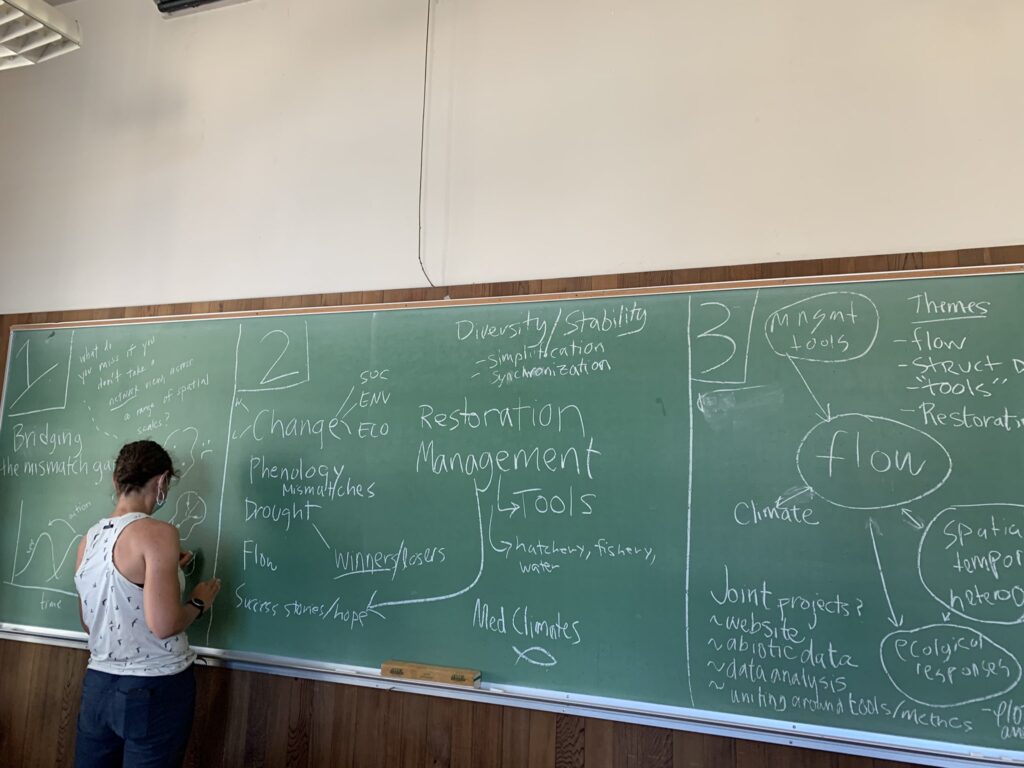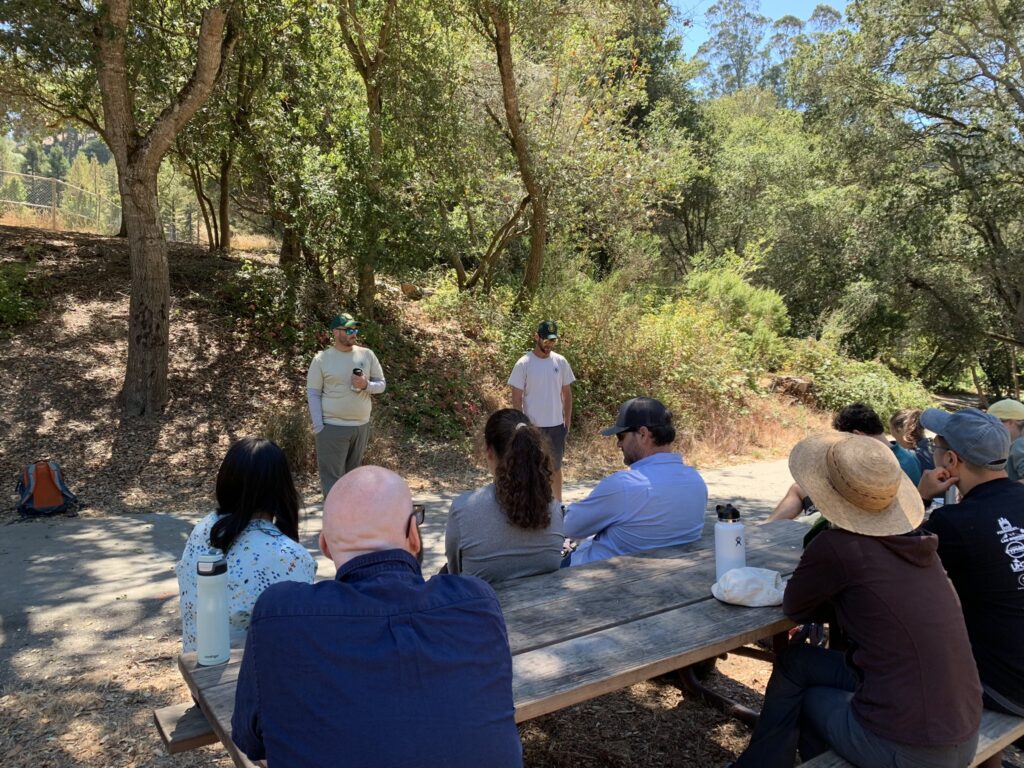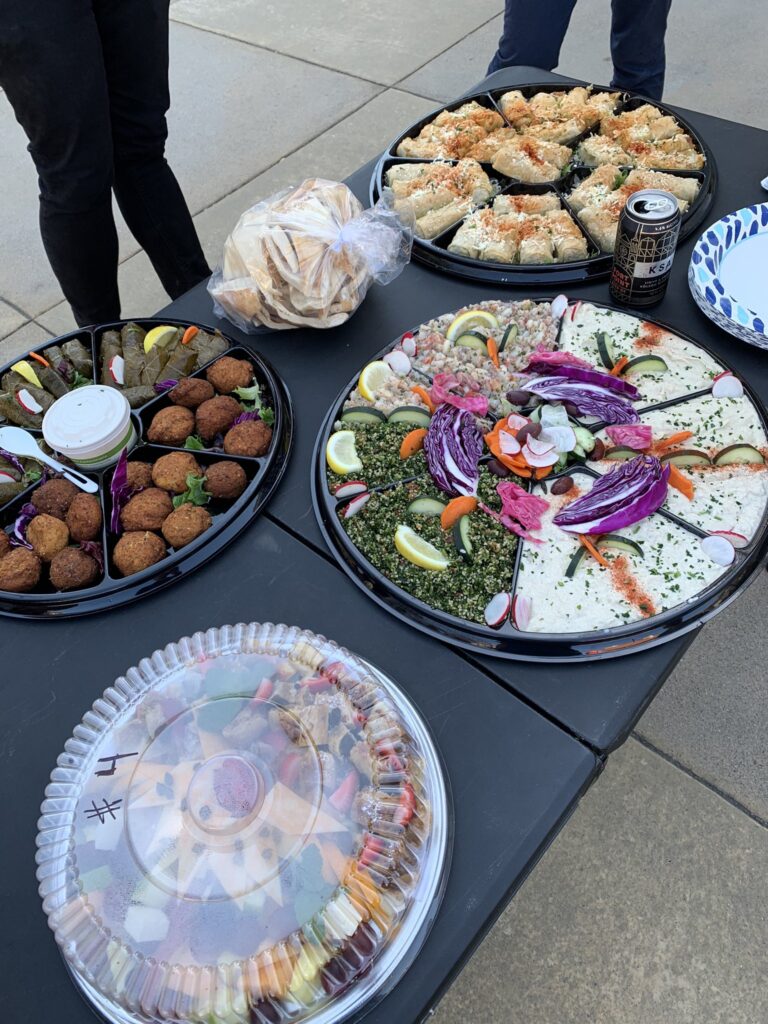The Spring 2023 issue of Breakthroughs focuses on “The Future of Water” and spotlights research in the Carlson, Ruhi, and Grantham labs to advance understanding of California’s threatened freshwater ecosystems. Read the story here.
Lab News
Changes in steam vertebrate communities linked to spatial and temporal patterns in drying
A new paper led by Hana Moidu in Freshwater Biology explores the environmental factors that affect the distribution and composition of stream vertebrates in an intermittent stream. Using a long-term monitoring data from Coyote Creek in northern California, Hana and co-authors show that distinct habitat types found intermittent streams (transient small pools, transient large pools, and persistent large pools) support distinct assemblages of aquatic invertebrates. These findings help us to understand how stream drying from human water use climate change can affect freshwater biodiversity.

Can genetic rescue be used as a tool to save endangered salmon? Kasey Pregler and team have some answers
Congratulations to Kasey Pregler and team on a new open-access publication in Conservation Letters evaluating the success of a genetic rescue intervention. This study represents the results of a large collaboration involving researchers at UC Berkeley, California Sea Grant, NOAA-Fisheries, and the Army Corps of Engineers, and Kasey’s effort on the project was supported by a UC Chancellor’s Postdoctoral Fellowship. You can learn more about this important project and results here!
Compliance barriers for cannabis cultivators
In this opinion piece, published in Land Use Policy, we explore the barriers that cannabis cultivators face in complying with California’s cannabis regulations post-legalization.
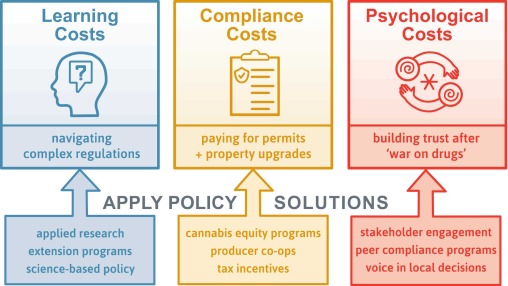
Welcome to Dr. Parsa Saffarinia!
Dr. Parsa Saffarinia is a new postdoc in the #BerkeleyFreshwater labs, and will be co-advised by Stephanie and Albert. Parsa was an undergraduate at Cal and we’re thrilled to welcome him back and to have a chance to work together on longfin smelt dynamics together with our research partner, Dr. Jim Hobbs, at CDFW!
Low-flows restrict Coho salmon smolt migration
A new paper from our research group, led by graduate student Brian Kastl, was recently published in Ecosphere, Migration in drought: Receding streams contract the seaward migration window of endangered salmon. The study explores how the migration of juvenile coho salmon from tributaries in the Russian River in springtime is affected by streamflow and temperature. We found that low seasonal streamflow and warm temperatures associated with drought resulted in an earlier and contracted migration of coho salmon smolts from the system. The research suggests that protecting environmental flows by limiting surface water diversions and reducing groundwater withdrawals could help expand the outmigration window for coho salmon smolts and mitigate the effects of drought in this system and in other salmon-bearing streams projected to experience more severe droughts under climate change.
The study was also covered in a story in the San Francisco Chronicle, “California drought poses more obstacles to young Russian River coho salmon.
Introducing Dr. Hana Moidu!
Hana Moidu defended her dissertation today (!) on: “Never the same river twice: On the causes and consequences of intermittent stream drying across space and time”. Hana was the first co-advised student in our growing #BerkeleyFreshwater multi-lab! Here she is with her proud PIs.
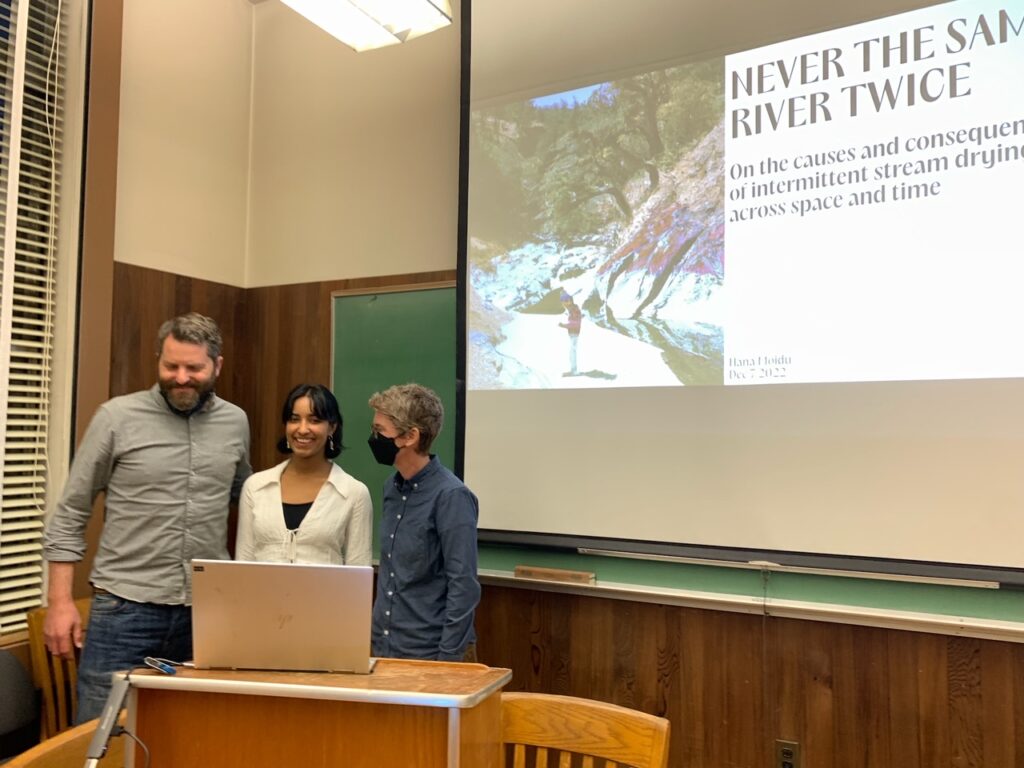
Carlson Lab hosts ESPM Seminar speaker, Dr. Cleo Wölfle Hazard, for his seminar on “Queer Trans River Sciences: Field Notes on Politics and Practice”
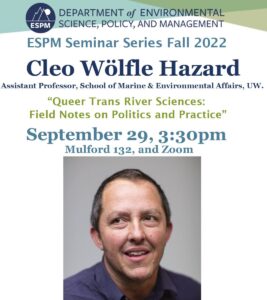
Cannabis agriculture at risk from wildfire
Wildfires are an increasing threat to people’s lives, property and livelihoods, especially in rural California communities. Cannabis, one of California’s most lucrative commercial crops, may be at a higher risk of loss from wildfire because it is mostly confined to being grown in rural areas, according to our new article led by Chris Dillis and published in Ecosphere. Check out the paper and UC press release!
Fun day of science and re-connecting at the #BerkeleyFreshwater fall retreat
Our #BerkeleyFreshwater team came together today for our fall retreat, which included a mix of life updates, science, visioning, and re-connecting after the summer field season. A highlight was learning from biologists with the East Bay Regional Park District about monitoring aquatic habitats in the 74 #EastBayRegionalParks. Fun & important conversations with a great group!
